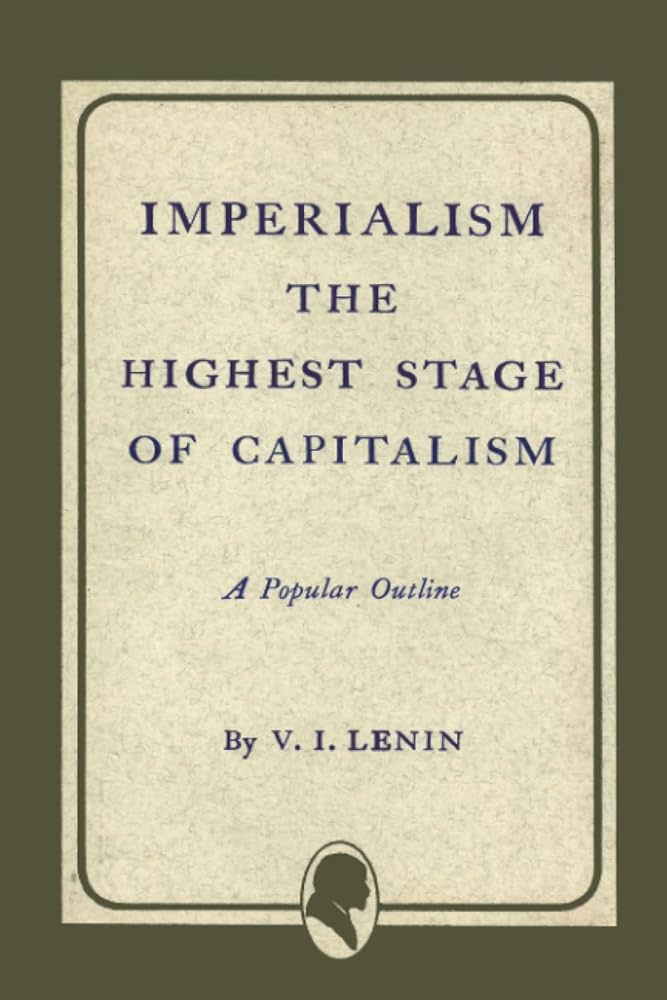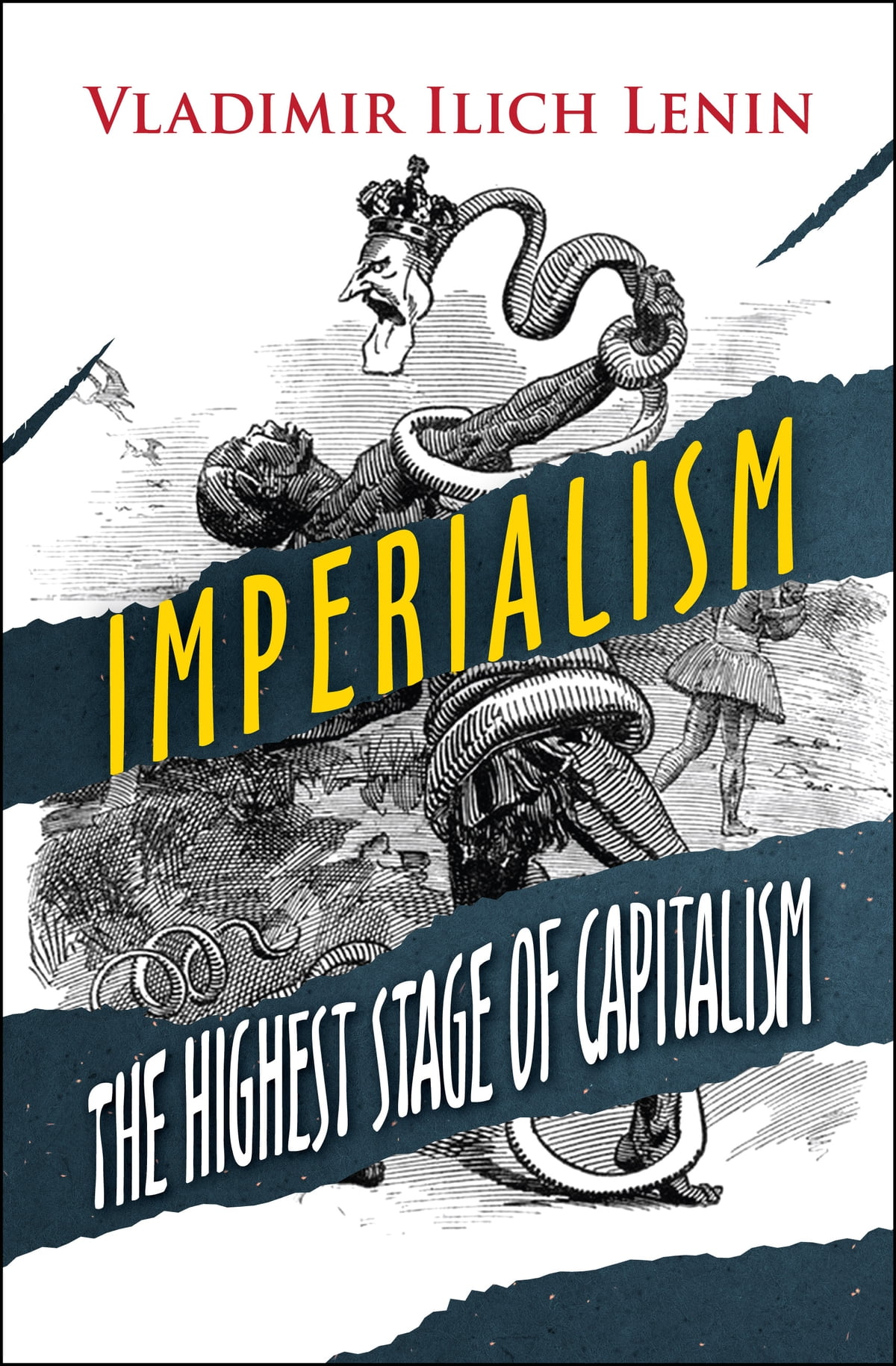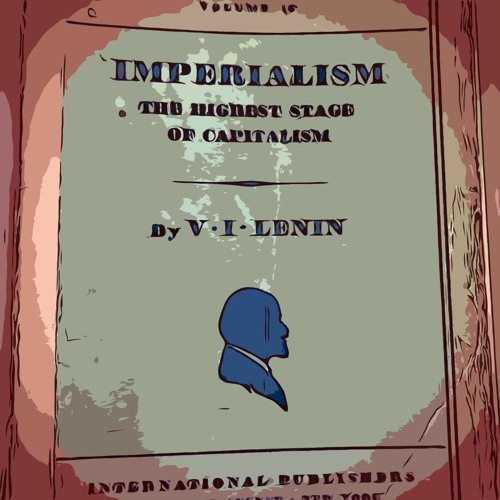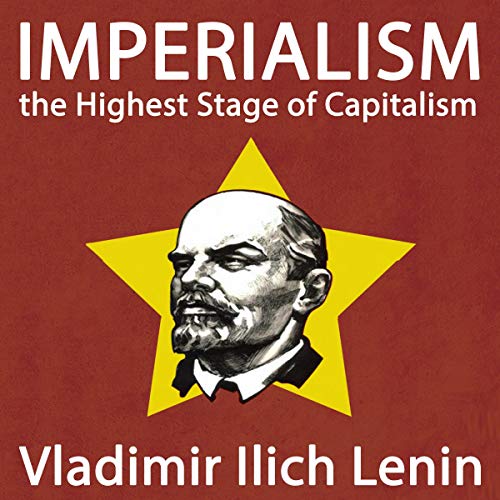V. I. Lenin’s “Imperialism, the Highest Stage of Capitalism” Audiobook explores how imperialism is a result of advanced capitalism. It delves into economic and political impacts.
Lenin’s work is pivotal in understanding the dynamics of imperialism. Published in 1917, this book argues that capitalism inevitably leads to monopolistic practices and global competition. He explains how financial oligarchies and colonial conquests serve capitalist interests. Lenin’s analysis provides a comprehensive view of economic exploitation and political domination.
This audiobook is essential for those studying Marxist theory, economic history, and political science. It offers valuable insights into the mechanisms of imperialism and their relevance today. Ideal for scholars and enthusiasts, it remains a significant Marxist critique of capitalist expansion.

Credit: www.amazon.com
The Genesis Of Lenin’s Seminal Work
V. I. Lenin’s “Imperialism, the Highest Stage of Capitalism” is a groundbreaking work. This audiobook brings his ideas to life. Lenin wrote this in a time of great economic change. Understanding the origins of his work is key to grasping its importance.
Context Of Early 20th Century Economics
The early 20th century saw rapid industrial growth. Many European nations sought new markets and resources. This period is known as the age of imperialism. Nations competed fiercely for colonies around the world. Economic powerhouses emerged, controlling vast territories.
Monopolies became common, and small businesses struggled. Workers faced poor conditions and low wages. This economic disparity led to social unrest. Economists and thinkers debated the future of capitalism.
Lenin’s Revolutionary Perspectives
Lenin viewed imperialism as the final stage of capitalism. He believed it was driven by the need for new markets. According to Lenin, capitalism would collapse under its own weight. His ideas challenged the existing economic theories.
Lenin’s work provided a new lens to understand global economics. He argued that imperialism intensified exploitation. His revolutionary perspective influenced many future leaders. Understanding Lenin’s viewpoint is crucial to grasping his theories.

Credit: www.kobo.com
Dissecting The Core Tenets Of ‘imperialism’
The audiobook of V. I. Lenin’s ‘Imperialism, the Highest Stage of Capitalism’ offers insightful perspectives on global economics. Lenin’s analysis helps us understand the dynamics of modern capitalism. In this section, we will explore three core tenets of his work.
Monopoly Capitalism Explained
Lenin describes monopoly capitalism as the concentration of capital into fewer hands. This results in big companies dominating entire industries. Small businesses struggle to compete and often fail. Big companies then merge to form larger monopolies. This leads to the suppression of free market competition.
These monopolies control prices and production. They also influence political decisions. This power leads to the exploitation of workers. The wealth gap between the rich and poor grows wider. Lenin argues that this is a natural progression of capitalism.
Global Capital And Colonialism
According to Lenin, global capital seeks new markets to exploit. Countries with strong economies dominate weaker ones. This is known as colonialism. Rich countries extract resources from poor nations. They use these resources to fuel their own growth.
This exploitation creates economic dependency. Poor nations rely on rich countries for investment. This keeps them in a cycle of poverty. Lenin claims that imperialism is an advanced stage of capitalism. It represents the global reach of monopolistic practices.
Finance Capital And The World Economy
Lenin introduces the concept of finance capital. This is the merger of bank and industrial capital. Finance capitalists control large amounts of money. They invest in various industries worldwide. This creates a global network of financial dependency.
Finance capitalists influence both national and international policies. They prioritize profits over human welfare. This results in economic instability and crises. Lenin believes this concentration of capital leads to global inequality. The power of finance capital shapes the world economy.
| Key Concept | Description |
|---|---|
| Monopoly Capitalism | Big companies dominate industries, suppressing competition. |
| Global Capital | Rich countries exploit poor nations for resources. |
| Finance Capital | Merger of bank and industrial capital influencing economies. |
These core tenets of Lenin’s theory provide a critical lens. They help us understand the complexities of modern capitalism. The audiobook serves as a valuable resource for those interested in economic theories.
Influence And Relevance In The Modern Era
V. I. Lenin’s “Imperialism, the Highest Stage of Capitalism” remains influential today. The audiobook brings his ideas to a new audience. This section explores its impact on modern times.
Contemporary Economic Structures
Lenin’s work critiques the economic structures of his time. It provides insights into today’s global capitalism. Many believe his analysis applies to modern economic systems.
| Aspect | Lenin’s Perspective | Modern Relevance |
|---|---|---|
| Monopolies | Control of markets | Big tech dominance |
| Finance Capital | Banking influence | Global financial crisis |
| Colonialism | Exploitation of colonies | Economic globalization |
Lenin saw monopolies as a key feature of capitalism. Today, big tech companies dominate markets. This mirrors Lenin’s view on monopolistic control.
He also discussed the role of finance capital. Banks and financial institutions have immense power. This is evident in the global financial crisis of 2008.
Lenin’s critique of colonialism highlights exploitation. Modern economic globalization shows similar patterns. Developing countries often face exploitation by richer nations.
Legacy In Political Thought
Lenin’s ideas have shaped political thought worldwide. They continue to influence modern politics. Many political movements draw on his theories.
- Communist Movements: Inspired by Lenin’s writings.
- Anti-Imperialist Struggles: Use his ideas to fight oppression.
- Socialist Policies: Implemented in various countries.
Communist movements globally find inspiration in Lenin’s work. Anti-imperialist struggles also use his ideas. They fight against modern forms of oppression.
Several countries have implemented socialist policies. These policies reflect Lenin’s influence. His legacy in political thought remains strong.

Credit: soundcloud.com
Conclusion
Exploring “Imperialism, the Highest Stage of Capitalism” via audiobook enriches our understanding of Lenin’s theories. This format offers a convenient way to grasp complex ideas. Dive into this classic work and gain valuable insights into capitalism’s intricacies. Embrace the knowledge and perspective Lenin provides for modern economic discussions.



